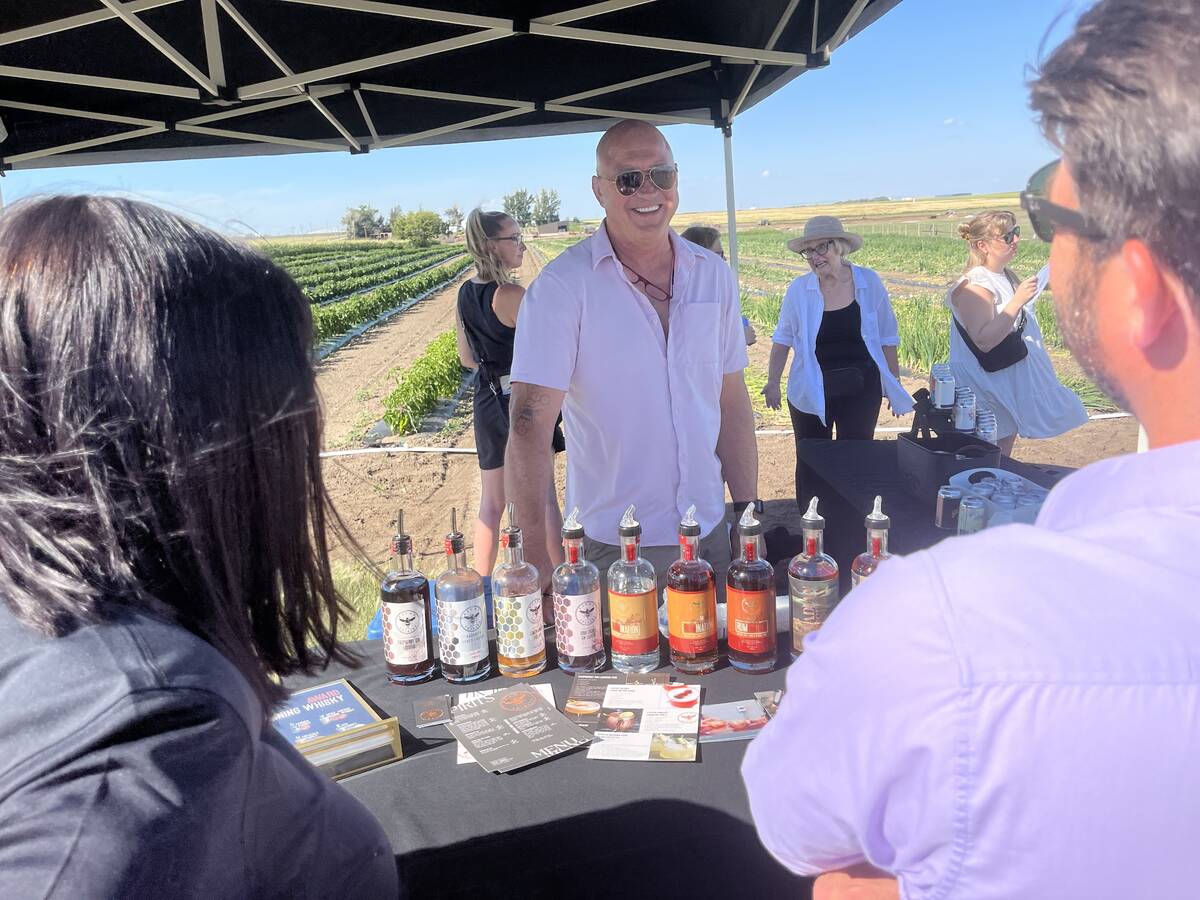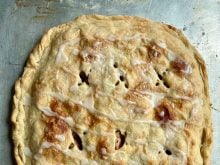MACGREGOR, Man. – Since October of last year, the Bison Boutique in MacGregor, Man., has been serving up fresh cut flowers along with a myriad of made-in-Manitoba products.
Originally, Laurelly Beswitherick and her husband Lyndon ran a smaller version of the operation on their farm, alongside B2 Beef Co., which delivers freezer beef to city buyers. But the operation soon outgrew the available space, and when the local flower shop in town came up for sale, they bought it.
Most of the year, the flowers come from the same local and international sources as any other florist shop, except in spring and summer when some are plucked from their own market garden.
Read Also

From farmer to award-winning distiller
Pivot Spirits showcases transition from farmer to distiller with provincial award-winning results in Alberta for Lars Hirch
The flower side of the operation pays the bills, but because it is in a small town, it lacks the potential for sales growth that the Manitoba products have, she said.
“It’s kind of our protest to showcase Manitoba, and to show the booming economy we could have if people would be willing to support it,” said Laurelly Beswitherick.
“We have one of the most diverse cross-sections of agriculture in all of Canada. As farmers, if we don’t promote ourselves, nobody else is going to.”
Most of their products, which include pasta, soup mixes, honey, wild rice and syrup made from Manitoba maple trees, are produced and packaged on Manitoba farms.
“A lot of the products have gone through the Food Development Centre in Portage la Prairie,” said Beswitherick.
“The pasta that we sell comes from a table egg producer in Steinbach who was looking for value added for his eggs.”
The packaging of the wild rice, oddly, is in German and English because the local market for the grain is not large. For this reason, most of it is exported to Western Europe.
“If you go to the stores, you’ll see that most of the wild rice comes from California.”
Her shop carries flavoured honey lines including peach, blackberry, blueberry, cherry, and strawberry, all of which come from a large honey processor in Manitoba that draws on the production of some 500 producers across Canada.
The flavoured honey is a big draw for people from nearby larger centres like Portage la Prairie and Winnipeg.
“They come out for the honey and when they see some of the other stuff in the store, they buy that, too.”
Although she doesn’t try to compete with grocery stores in town, many local people come for specific products, such as a kind of noodles that aren’t sold elsewhere.
Pizzey’s Milling, the largest specialty flax processor in North America, supplies products such as flax pancake, waffle and bran muffin mixes.
“There are a lot of rural businesses. People in Manitoba don’t realize how much they actually have here in their own province,” she said.
“We have a lot of different stuff here, but we kind of specialize in the made-in-Manitoba products. That’s what has gotten us to where we are.”
Beswitherick said that when a potential supplier approaches her about getting their product on the store’s shelves, she asks them to name a price that is acceptable to them first. Then, she considers that number against the retail markup that she needs, and tells them yes or no, without haggling.
Some people need to work on their packaging first, she said.
“There’s no excuse why things can’t be as professionally packaged as other products,” she said. “It could be the best product in the world, but if it doesn’t look good, nobody is going to buy it.”
Gift baskets are selling well, she said. One company that was celebrating a special occasion bought 100 baskets at $50 each.
Government agencies, as they become more aware of her store and its potential for showcasing rural entrepreneurs, are starting to place more orders.
Why set up shop in MacGregor and not the big city?
“Because this is where we live, where our farm is. We saw an opportunity,” she said, adding that the flower shop had been operating successfully for a long time.
Now that they have more space with the new storefront, they have expanded their product line into gift items such as pottery, candles, paintings, frames and handicrafts. The shop employs three part-time workers.
Apart from in-store sales, Beswitherick said that being able to ship products abroad, such as gift baskets, has paid dividends.
“We get a lot of people coming in who want to send Manitoba products to Australia. We’ve had products go all across Canada, North America, South America and Western Europe.”
Post-secondary training in interior design has helped her organize the store layout and the flower side, but the retail business comes naturally for her.
“I’m just very stubborn and determined,” she said. “A lot of it is comparing what everybody else has and what their prices are and then setting my prices according to what I think my value can be.”














